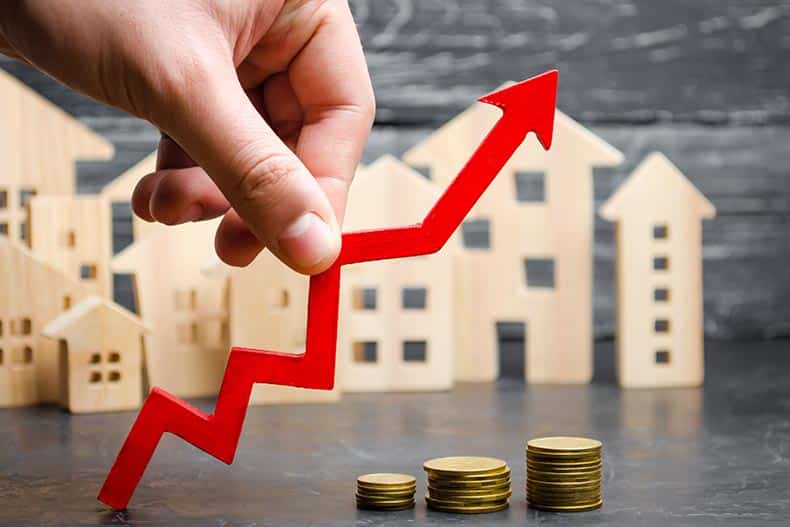December wrapped up on a high note for the housing industry, capping off a year of stabilization and growth. From steady mortgage rates to an influx of new construction homes, the past year set the stage for a dynamic real estate market. However, as we step into 2025, shifts in the market are already on the horizon.
With evolving trends in mortgage rates, home inventory, and pricing, the housing market outlook for 2025 promises to bring new opportunities and challenges for buyers and sellers alike. While the year ahead may look different, it offers an exciting chance to navigate a changing real estate landscape.
Key Takeaways
- The market stabilized in 2024 but will see changes in mortgage rates, inventory, and pricing in 2025.
- Mortgage rates ended 2024 at 6%-7%, with gradual increases expected in 2025.
- More new construction caused homes to stay on the market longer by the end of 2024.
- 55+ homebuyers should plan for 20% down, maintain a 650+ credit score, and explore government programs for support.
Mortgage Rates for 2024

Mortgage rates fluctuated during the first half of the year, showing signs of stabilization by midyear. However, since July, rates have been steadily climbing, albeit incrementally. According to Freddie Mac, the 30-year mortgage rate reached 6.85% in December, and 15-year mortgages averaged 6%.
These rates are less than one percentage point higher than last year, marking 2024 as a period of stabilization and establishing a new benchmark for homebuyers. Across the country, mortgage rates are now consistently between 6% and 7%, even for borrowers with excellent credit.
Home Inventory

In the last quarter of 2024, many new homes and developments entered the market, especially in hotbed areas with high demand. We also saw new construction condos, townhomes, and single-family homes popping up within 55+ communities.
The number of new homes available has increased compared to last year, as many properties that were in the planning or development stages in 2023 are now completed. Alongside resale homes on the market, this provides more options for buyers looking to make a move, creating a positive housing market outlook for 2025.
Home Prices

Like mortgage rates, home prices are also starting to stabilize, especially in areas with many homes available. With the market full of new construction homes again, home prices didn’t rise as they did just a few years before.
By the end of the year, almost half of all home listings were sitting for almost two months before purchase—and some even longer. Homebuyers now have a say in what type of home they want. With more homes on the market than buyers, you can expect home prices to continue trending down. Current home listings may start to decrease their prices, around $5,000-$10,000 at a time, especially as homes sit for a new 30-day period. If you’re patient and taking your time looking for a home, you could see the price of your preferred home go down in the coming year.
What 55+ Homebuyers Need to Know Ahead of 2024

Down Payment
While there’s always a chance that new programs could arise in 2025, plan for traditional mortgage loans and your standard 20% down payment. Mortgage rates stayed between 6% and 7% for most of last year, and that trend is expected to continue. This means that to secure the best rate, you’ll need a high down payment to make your monthly payments manageable.
Credit Score Maintenance
Now that the holidays are behind us, it’s time to focus on getting that debt back down and maintaining a 650 credit score at the minimum. If you exceeded your 30% debt-to-income ratio this holiday season, make sure you tackle the snowball effect of getting your credit card balance down and your credit score up.
This snowball effect tackles the smallest balances first, paying them off and then moving to the next credit card. You don’t have to pay the whole balance down, but you want to get it below 30% per card to help maintain or increase your credit score after the holidays.
Budget Preparation
Now that you know what to expect with your mortgage rate, it’s time to set a budget. If you’re purchasing a new home on a fixed income or plan to have a fixed income after the purchase, then you need to know your maximum mortgage payment. When you’re calculating an estimated budget, make sure you take into account utility expenses, insurance, and monthly homeowners’ association (HOA) fees that come with many 55+ home purchases.
Assistance Options Available for 55+ Homebuyers

Single-Family Housing Programs
If you’re not interested in moving into a 55+ community but would rather stay in a rural area, there’s a USDA program available. With this program, you don’t have to put down money when you purchase a home in an eligible area. Before you purchase the home, you can enter the address and see if it’s an eligible property. If you find an eligible home and are listed as an eligible applicant, you may get to forego your down payment. This could inflate your monthly budget.
HUD Programs For Seniors
At the federal level, the U.S. Department of Housing and Urban Development offers several resources for senior citizens and those looking to secure new and safe housing throughout the country. This link provides a list of resources covering reverse mortgages for seniors, loan options, and even access to a HUD-approved counselor in your area to review your options.
55places Can Help You Buy a Home in 2025!
Did the housing market outlook for 2025 inspire you to make your move? Whether you’re looking for the perfect 55+ community, exploring new construction options, or navigating today’s mortgage and housing trends, 55places.com is here to help. With our expert guidance and comprehensive resources, we’ll make finding your dream home easier than ever. Don’t wait—contact 55places.com today and let us help you take the first step toward your next chapter!
FAQ
What are the current mortgage interest rates in 2025?
Interest rates can vary depending on the lender, your credit score, and the type of loan. For 55+ homebuyers, start by determining your budget and reviewing your credit score to understand your borrowing power. Then, shop around and compare rates from different lenders. Use online tools to explore current rates and consult with mortgage brokers who understand the unique needs of 55+ buyers. Additionally, ask about loan programs tailored for retirees or those with non-traditional income sources to ensure you find the most competitive rate for your situation.
What is the typical timeline for buying a home in 2025?
The process typically takes 30-60 days from pre-approval to closing, depending on the market and any contingencies in the purchase agreement. For 55+ homebuyers, start by obtaining a mortgage pre-approval to show sellers you’re a serious buyer. Gather all necessary paperwork, such as proof of income, retirement account statements, and identification, in advance.
If you’re buying in a 55+ community, confirm that you meet age and residency requirements early in the process. Also, 55places.com can connect you with an experienced real estate agent to address contingencies promptly, such as inspections or HOA approvals, to keep everything on track and potentially shorten the timeline.
What is the best way to compete in a hot housing market?
To stay competitive, 55+ homebuyers should start by getting pre-approved for a mortgage, ensuring that their financials are in order and demonstrating serious intent to sellers. When making an offer, consider including a strong earnest money deposit to show your commitment.
Be prepared to make a competitive offer, especially in sought-after 55+ communities, and remain flexible with contingencies, such as inspection timelines or move-in dates, to appeal to sellers. Partnering with an experienced real estate agent who understands the 55+ housing market can provide valuable insights and help you navigate community-specific requirements or amenities to secure your ideal home.
What costs should I budget for beyond the home price?
In addition to the purchase price, 55+ homebuyers should budget for closing costs (typically 2-5% of the loan amount), which may include lender fees, title insurance, and appraisal costs. Research property taxes in the area, as they can vary widely, and determine if any discounts are available for seniors.
Plan for homeowners insurance and, if you’re buying in a 55+ community, confirm the monthly or annual HOA fees, which may cover amenities like landscaping, clubhouse access, or maintenance. Finally, factor in ongoing maintenance expenses, such as utilities, repairs, and upgrades, to ensure your new home remains comfortable and well-kept.









